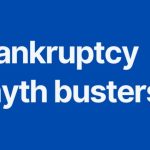Using unsecured personal funds in a business is an issue for many small companies. Jirsch Sutherland Partner Trent Devine says many people don’t understand the implications of becoming a director and the consequences can be dire in some cases.
“I once worked on a case where the company’s sole Director/Shareholder had sold his house and other personal assets and put $5 million into his business without securing the debt,” Trent says.

“The business ultimately went bust and he lost everything and became bankrupt. If he had taken security over the assets of the company he would have at least walked away with some money, given the significant plant and equipment, and avoided bankruptcy.”
Trent says people often confuse personal and business assets. “But if you’re loaning money to business you should secure it,” he says.
Mills Oakley Partner Peter Hodges says securing your funds properly provides such a powerful degree of protection it’s astounding that it is not more regularly utilised.
“For example, consider someone who sets up a launderette but finds it really hard to secure bank funding upfront so he loans his own money into it,” he says. “In circumstances where a director does this, nine times out of 10 they end up regretting it if an insolvency situation comes up because all they are is another unsecured creditor.”
Peter says if they had instead taken the right – and reasonably simple – steps upfront, they could have granted themselves a security interest in the assets of the company thereby giving their claim to those assets a higher priority.
“It might only be a specific security interest in a vehicle or piece of equipment but they could dramatically improve their position both in circumstances where there is a problem down the track such as an insolvency event or if the company had a claim against it that presented a risk of an insolvency event being forced upon it,” he says.
Peter cites the example of a director needing to buy washing machines for his launderette business. The bank won’t lend him any money so he provides the funds himself through redrawing on his mortgage.
“All his accountant has to do is to properly document in the company minutes a resolution that agrees to accept those funds and that the company agrees to enter into a loan agreement and general security agreement with the director or the entity of the director advancing the money,” he says. “A security interest can then be granted by the company in favour of the director over the company’s assets generally as well as over particular assets that the company is purchasing with the loan money, in this case the washing machines.”

Peter says in this setting the director is effectively acting as the bank for the company. “This means if there is ever a problem with the company, then he is a secured creditor and he can get paid out ahead of almost all other unsecured creditors – barring a few exceptions,” he says. “In this situation he is dramatically better off than if he was a general unsecured creditor, which most directors find themselves when it all goes bad.”
There is another benefit to taking this action, Peter says. “Say the company is being sued by someone and the director thinks they may lose the case. If the director is a secured creditor, if the loan agreement has been properly drafted and if the security interest has been properly registered, then the director can put a receiver in to sell the assets of the company and pay him back. In which case it completely defeats that claim against the company.”
Tight funds
One of the reasons business people don’t take out this protection, he says, is because a lot of people who go into business do so on the smell of an oily rag.
“The idea of spending money to take prudent advice upfront is a worry for them as cash is tight,” he says. “If you talk to a lot of accountants you find they are interested in putting these things into place but it’s not at the forefront of people’s minds.”
Peter adds when money is tight people don’t like to spend on personal advisers.
“When a business becomes profitable what needs to happen is an audit to show what happened in the early days as soon as there are funds to provide it,” he says.
“But when people are off and running with their business they don’t like to look in the rear view mirror.”
He adds often it’s not until there is a problem that what they should have done upfront is brought to their attention.
“There are a lot of good accountants who talk about this with their clients but I think we are all so busy being reactive to our clients’ needs that sitting down and giving them a bit of a ‘security health check’ is not front of mind,” Peter adds.











